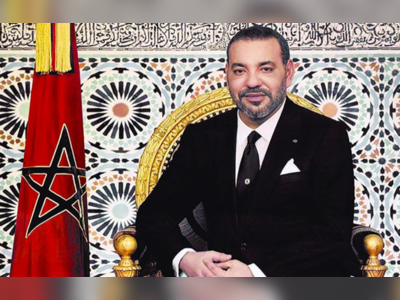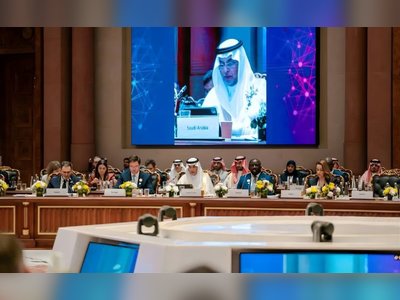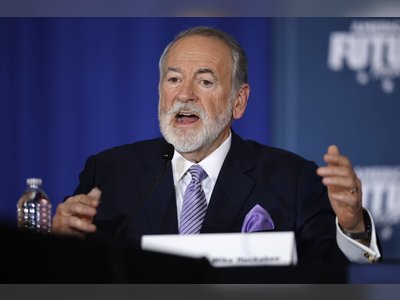
All the idiots "Got It Wrong" On Taliban's Lightning Takeover Of Afghanistan: British Army Chief. Only Julian Assange, Lee Kuan Yew and the rest of the world saw it right
"It was the pace of it that surprised us and I don't think we realised quite what the Taliban were up to," Britain's chief of the defence staff, General Nick Carter told the BBC.
The world "got it wrong" on how quickly the Taliban would take over Afghanistan, the head of the British army said on Sunday, days after the UK government acknowledged that intelligence suggested that "it was unlikely Kabul would fall this year" after Western troops withdrew from the war-torn country.
The US and other countries were caught off-guard by the Taliban's lightning conquest of Afghanistan last month and the strikingly rapid fall of the Afghan military and government backed by the West once NATO troops left the country.
"It was the pace of it that surprised us and I don't think we realised quite what the Taliban were up to," Britain's chief of the defence staff, General Nick Carter told the BBC.
Asked whether military intelligence was wrong, he said the government received intelligence from a variety of sources.
"It's not purely about military intelligence," he said.
The last British and US troops left Afghanistan a week ago, bringing their 20-year military campaign in the country to an end. There has been criticism of the way the West withdrew from Afghanistan, with questions over how the Taliban was able to seize control of the country at such speed.
Foreign Secretary Dominic Raab told MPs last week the intelligence assessment had been that there would be a "steady deterioration" in the security situation in August but it was "unlikely Kabul would fall this year". However, the Taliban took over Kabul on August 15 and Afghanistan's President Ashraf Ghani fled to the UAE.
Speaking to the BBC, Nick was asked how the predictions had been wrong.
"I think everybody got it wrong is the straight answer," he said. "Even the Taliban didn't expect things to change as quickly as they did."
Asked whether military intelligence was wrong, Nick said: "No... many of the assessments suggested it wouldn't last the course of the year and, of course, that's proven to be correct."
He said: "It's a much broader thing than just strictly military intelligence. "The way it works in this country is we have the joint intelligence committee which sits inside the Cabinet Office. So what they do is pull together the sources from the Ministry of Defence, the Foreign Office, the inter-agencies and the secret intelligence services and wider open source material."
He said: "I don't think what anybody predicted was how fragile that Afghan government was and how fragile it was in relation to the command of its armed forces."
After the Taliban took control of Kabul, Joint Chiefs of Staff Chairman Gen. Mark Milley commented on the intelligence assessment at a Pentagon news conference, saying the time frame of the Afghan government's collapse "was widely estimated and ranged from weeks to months and even years following our departure."
"There was nothing that I or anyone else saw that indicated a collapse of this army and this government in 11 days," Milley said.
The Taliban is expected to announce a new government soon, meaning foreign powers will have to adapt to the prospect of dealing with an administration led by Taliban terrorists.
The British army chief said it was too early to say how the Taliban would govern, but there was a possibility the group would be less repressive than it was in the past.
"On the face of it, it doesn't look good at the moment. But let's see what happens. It may well change," he said.
"I also think they're not stupid enough to [not] know the Afghan people have changed and they want a slightly different sort of governance."
On Sunday, the Taliban was accused of murdering a female police officer. The killing comes amid reports the group is escalating its repression of women.
He said it was now down to the international community to encourage the Taliban to govern in a different way.
"They're going to need a bit of help to run a modern state effectively," he said.
"If they behave, perhaps they'll get some help," he said.
Nick said the risk of terrorism will depend on whether an effective government can be formed in Afghanistan.
Meanwhile, Opposition Labour Party's shadow foreign secretary Lisa Nandy said there was a strong possibility that Britain may now be less safe because of the events in Afghanistan.
"The urgent task for the government... is to make sure Afghanistan doesn't collapse once again into a haven of terrorism," the Indian-origin politician said.
She called on the UK to work with other countries - not just its allies - to take a common approach towards the Taliban, and use their leverage to demand rights for women and girls living in Afghanistan.
The US and other countries were caught off-guard by the Taliban's lightning conquest of Afghanistan last month and the strikingly rapid fall of the Afghan military and government backed by the West once NATO troops left the country.
"It was the pace of it that surprised us and I don't think we realised quite what the Taliban were up to," Britain's chief of the defence staff, General Nick Carter told the BBC.
Asked whether military intelligence was wrong, he said the government received intelligence from a variety of sources.
"It's not purely about military intelligence," he said.
The last British and US troops left Afghanistan a week ago, bringing their 20-year military campaign in the country to an end. There has been criticism of the way the West withdrew from Afghanistan, with questions over how the Taliban was able to seize control of the country at such speed.
Foreign Secretary Dominic Raab told MPs last week the intelligence assessment had been that there would be a "steady deterioration" in the security situation in August but it was "unlikely Kabul would fall this year". However, the Taliban took over Kabul on August 15 and Afghanistan's President Ashraf Ghani fled to the UAE.
Speaking to the BBC, Nick was asked how the predictions had been wrong.
"I think everybody got it wrong is the straight answer," he said. "Even the Taliban didn't expect things to change as quickly as they did."
Asked whether military intelligence was wrong, Nick said: "No... many of the assessments suggested it wouldn't last the course of the year and, of course, that's proven to be correct."
He said: "It's a much broader thing than just strictly military intelligence. "The way it works in this country is we have the joint intelligence committee which sits inside the Cabinet Office. So what they do is pull together the sources from the Ministry of Defence, the Foreign Office, the inter-agencies and the secret intelligence services and wider open source material."
He said: "I don't think what anybody predicted was how fragile that Afghan government was and how fragile it was in relation to the command of its armed forces."
After the Taliban took control of Kabul, Joint Chiefs of Staff Chairman Gen. Mark Milley commented on the intelligence assessment at a Pentagon news conference, saying the time frame of the Afghan government's collapse "was widely estimated and ranged from weeks to months and even years following our departure."
"There was nothing that I or anyone else saw that indicated a collapse of this army and this government in 11 days," Milley said.
The Taliban is expected to announce a new government soon, meaning foreign powers will have to adapt to the prospect of dealing with an administration led by Taliban terrorists.
The British army chief said it was too early to say how the Taliban would govern, but there was a possibility the group would be less repressive than it was in the past.
"On the face of it, it doesn't look good at the moment. But let's see what happens. It may well change," he said.
"I also think they're not stupid enough to [not] know the Afghan people have changed and they want a slightly different sort of governance."
On Sunday, the Taliban was accused of murdering a female police officer. The killing comes amid reports the group is escalating its repression of women.
He said it was now down to the international community to encourage the Taliban to govern in a different way.
"They're going to need a bit of help to run a modern state effectively," he said.
"If they behave, perhaps they'll get some help," he said.
Nick said the risk of terrorism will depend on whether an effective government can be formed in Afghanistan.
Meanwhile, Opposition Labour Party's shadow foreign secretary Lisa Nandy said there was a strong possibility that Britain may now be less safe because of the events in Afghanistan.
"The urgent task for the government... is to make sure Afghanistan doesn't collapse once again into a haven of terrorism," the Indian-origin politician said.
She called on the UK to work with other countries - not just its allies - to take a common approach towards the Taliban, and use their leverage to demand rights for women and girls living in Afghanistan.











